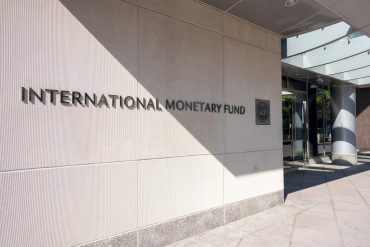
IMF Cuts Global Growth Forecast to 2.7% Amid Inflation Concerns
5 minute read

Global Recovery Faces Regional Disparities as Advanced Economies Slow to 1.1% While Emerging Markets Show Resilience at 3.9%
Key Facts
- The International Monetary Fund reduced its global growth forecast to 2.7% for 2023, down from the previous 2.9% estimate, citing persistent inflation and geopolitical tensions
- Northern Ireland faces a severe infrastructure crisis with 19,000 new homes stalled due to waste water capacity issues and approximately 100 treatment facilities at or near capacity
- Advanced economies are projected to experience significantly slower growth at 1.1%, while emerging markets are expected to achieve 3.9% growth, highlighting uneven global recovery patterns
Introduction
Global economic uncertainty deepens as the International Monetary Fund delivers a sobering assessment of worldwide growth prospects. The organization’s latest World Economic Outlook report reveals a downward revision in growth projections, signaling mounting challenges for policymakers worldwide.
The IMF now projects global growth of 2.7% for 2023, marking a decrease from its previous 2.9% estimate. This revision reflects the persistent headwinds facing the global economy, including stubborn inflation rates and escalating geopolitical tensions that continue to disrupt international trade and investment flows.
Key Developments
Central banks worldwide find themselves navigating increasingly complex terrain as they attempt to balance inflation control with economic growth support. The IMF emphasizes the critical importance of coordinated policy responses to address these mounting challenges.
The organization’s report reveals stark disparities between different economic regions. Advanced economies face particularly steep headwinds, with growth expected to slow dramatically to just 1.1%. This represents a significant contraction in economic momentum for developed nations.
Emerging markets demonstrate greater resilience, with projected growth rates of 3.9%. These economies benefit from different structural advantages, including varying vaccination rates, fiscal capacity levels, and economic frameworks that provide more flexibility during uncertain times.
Market Impact
Geopolitical factors continue to weigh heavily on global economic prospects. The ongoing conflict in Ukraine, combined with rising tensions in the Asia-Pacific region, creates substantial uncertainty for international markets.
Supply chain disruptions remain a primary concern for businesses and policymakers alike. These interruptions affect everything from manufacturing timelines to consumer goods availability, creating ripple effects throughout the global economy.
Regional infrastructure challenges add another layer of complexity to economic recovery efforts. Northern Ireland exemplifies these broader infrastructure struggles, with approximately 100 waste water treatment facilities operating at or near capacity limits.
Strategic Insights
The current economic environment demands careful policy calibration from government officials and central bankers. Traditional monetary policy tools face limitations when addressing simultaneous inflation and growth concerns.
Infrastructure investment emerges as a critical component of long-term economic stability. Northern Ireland’s situation illustrates how infrastructure bottlenecks can significantly impact regional development, with 19,000 new homes currently stalled due to waste water capacity constraints.
Political considerations often complicate necessary infrastructure reforms. Infrastructure Minister John O’Dowd’s explicit rejection of household water charges demonstrates the tension between economic necessity and political feasibility in addressing infrastructure funding gaps.
Expert Opinions and Data
According to Financial Times, the IMF report emphasizes that inflation remains a significant concern for monetary authorities worldwide. The organization recommends that “central banks must continue their battle against inflation while providing targeted fiscal relief.”
Economic analysts stress the importance of maintaining flexibility in policy responses as global conditions continue evolving. The uneven nature of recovery across different regions requires tailored approaches rather than one-size-fits-all solutions.
Infrastructure experts warn that resolving capacity issues could require up to a decade of sustained investment, even with immediate action. This timeline represents a significant challenge for regions experiencing rapid development pressure or housing shortages.
The Finance Minister’s recent announcement of £15 million in urban drainage funding through the transformation fund appears insufficient given the scale of infrastructure challenges facing the region. This funding gap highlights the broader global challenge of maintaining adequate public infrastructure investment.
Summary
The IMF’s downward revision of global growth forecasts reflects the complex challenges facing the world economy. Persistent inflation, geopolitical tensions, and infrastructure constraints create a challenging environment for sustained economic expansion.
The divergence between advanced and emerging economies underscores the uneven nature of global recovery. While some regions show resilience, others face significant structural challenges that require comprehensive policy responses.
Economic policymakers must balance multiple competing priorities while addressing both immediate concerns and long-term infrastructure needs. The success of these efforts will largely determine the trajectory of global economic recovery in the months ahead.








